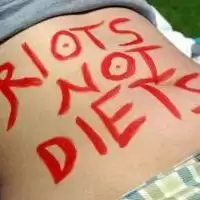-
Welcome to Celiac.com!
You have found your celiac tribe! Join us and ask questions in our forum, share your story, and connect with others.
-
Celiac.com Sponsor (A1):
Celiac.com Sponsor (A1-M):
-
Get Celiac.com Updates:Support Our Content
Food Journaling to Find the Gas Culprit
-
Get Celiac.com Updates:Support Celiac.com:
-
Celiac.com Sponsor (A17):
Celiac.com Sponsor (A17):
Celiac.com Sponsors (A17-M):
-
Recent Activity
-
- trents commented on Scott Adams's article in Latest Research70
COVID-19 a Possible Trigger for Celiac Disease in Those with Genetic Risk
I found this article interesting. It mentions "autoimmunity" as one of the possible contributing factors to those who experience chronic health problems following vaccinations, particularly COVID vacs. https://www.foxnews.com/health/scientists-find-clues-covid-vaccine-causes-chronic-health-problems- celiac
- celiac disease
- (and 5 more)
-
- Kiwifruit replied to Kiwifruit's topic in Celiac Disease Pre-Diagnosis, Testing & Symptoms12
Years of testing - no real answers
Thank you! -
- trents replied to Kiwifruit's topic in Celiac Disease Pre-Diagnosis, Testing & Symptoms12
-
- Kiwifruit replied to Kiwifruit's topic in Celiac Disease Pre-Diagnosis, Testing & Symptoms12
Years of testing - no real answers
Hi I just wanted to update you all and let you know that I finally have my diagnosis. 2 weeks ago I had my third gastroscopy and the biopsy confirmed the damage. Thank you for giving me the information I needed to advocate for myself when I a was a feeling so lost! -
- Scott Adams replied to Tyoung's topic in Related Issues & Disorders2
Celiac Disease and Mild Chronic Gastritis
I agree that the gastritis may go away after you've been on a gluten-free diet for a while. If you are concerned, it might make sense for you to do a follow up biopsy after a year or so on a gluten-free diet. This article has some detailed information on how to be 100% gluten-free, so it may be helpful (be sure to also read the comments section....
-




Recommended Posts
Archived
This topic is now archived and is closed to further replies.